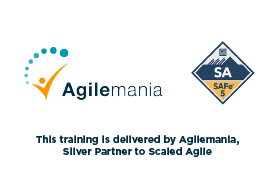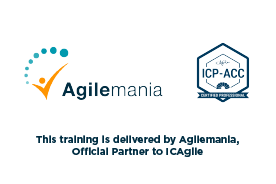
1:1 Coaching
24*7 Support
CloudLabs
High Success Rate
Globally Renowned PSTs Trainer
Real-time code analysis and feedback
Course Description
The Cloud Security Professional should be proficient in all aspects of Cloud Security including managing identity and access management, defining organizational structure and policies, using Google technologies to provide data protection, configuring network security defenses, collecting and analyzing Google Cloud Platform logs, managing incident responses, and an understanding of regulatory concerns.
Learning Objectives
This course teaches participants the following skills:
- Understanding the Google approach to security Managing administrative identities using Cloud Identity.
- Implementing least privilege administrative access using Google Cloud Resource Manager, Cloud IAM.
- Implementing IP traffic controls using VPC firewalls and Cloud Armor Implementing Identity Aware Proxy Analyzing changes to the configuration or metadata of resources with GCP audit logs Scanning for and redact sensitive data with the Data Loss Prevention API Scanning a GCP deployment with Forseti Remediating important types of vulnerabilities, especially in public access to data and VMs.
Certification Curriculum
 Foundations of GCP Security
Foundations of GCP Security
- Google Cloud’s approach to security
- The shared security responsibility model
- Threats mitigated by Google and by GCP
- Access Transparency
 Cloud Identity
Cloud Identity
- Cloud Identity
- Syncing with Microsoft Active Directory
- Choosing between Google authentication and SAML-based SSO
- GCP best practices
 Identity and Access Management
Identity and Access Management
- GCP Resource Manager: projects, folders, and organizations
- GCP IAM roles, including custom roles
- GCP IAM policies, including organization policies
- GCP IAM best practices
 Configuring Google Virtual Private Cloud for Isolation and Security
Configuring Google Virtual Private Cloud for Isolation and Security
- Configuring VPC firewalls (both ingress and egress rules)
- Load balancing and SSL policies
- Private Google API access
- SSL proxy use
- Best practices for structuring VPC networks
- Best security practices for VPNs
- Security considerations for interconnection and peering options
- Available security products from partners
 Monitoring, Logging, Auditing, and Scanning
Monitoring, Logging, Auditing, and Scanning
- Stackdriver monitoring and logging
- VPC flow logs
- Cloud audit logging
- Deploying and Using Forseti
 Securing Compute Engine: techniques and best practices
Securing Compute Engine: techniques and best practices
- Compute Engine service accounts, default and customer-defined
- IAM roles for VMs
- API scopes for VMs
- Managing SSH keys for Linux VMs
- Managing RDP logins for Windows VMs
- Organization policy controls: trusted images, public IP address, disabling serial port
- Encrypting VM images with customer-managed encryption keys and with customer-supplied encryption keys
- Finding and remediating public access to VMs
- VM best practices
- Encrypting VM disks with customer-supplied encryption keys
 Securing cloud data: techniques and best practices
Securing cloud data: techniques and best practices
- Cloud Storage and IAM permissions
- Cloud Storage and ACLs
- Auditing cloud data, including finding and remediating publicly accessible data
- Signed Cloud Storage URLs
- Signed policy documents
- Encrypting Cloud Storage objects with customer-managed encryption keys and with customer-supplied encryption keys
- Best practices, including deleting archived versions of objects after key rotation
- BigQuery authorized views
- BigQuery IAM roles
- Best practices, including preferring IAM permissions over ACLs
 Protecting against Distributed Denial of Service Attacks: techniques and best practices
Protecting against Distributed Denial of Service Attacks: techniques and best practices
- How DDoS attacks work
- Mitigations: GCLB, Cloud CDN, autoscaling, VPC ingress and egress firewalls, Cloud Armor
- Types of complementary partner products
 Application Security: techniques and best practices
Application Security: techniques and best practices
- Types of application security vulnerabilities
- DoS protections in App Engine and Cloud Functions
- Cloud Security Scanner
- Threat: Identity and Oauth phishing
- Identity Aware Proxy
 Content-related vulnerabilities: techniques and best practices
Content-related vulnerabilities: techniques and best practices
- Threat: Ransomware
- Mitigations: Backups, IAM, Data Loss Prevention API
- Threats: Data misuse, privacy violations, sensitive/restricted/unacceptable content
- Mitigations: Classifying content using Cloud ML APIs; scanning and redacting data using Data Loss Prevention API
Prerequisites
To get the most of out of this course, participants should have:
- Prior completion of Google Cloud Platform Fundamentals: Core Infrastructure or equivalent experience Prior completion of Networking in Google Cloud Platform or equivalent experience Knowledge of foundational concepts in information security.
- Fundamental concepts: vulnerability, threat, attack surface confidentiality, integrity, availability Common threat types and their mitigation strategies Public-key cryptography Public and private key pairs Certificates Cipher types Key width Certificate authorities.
- Transport Layer Security/Secure Sockets Layer encrypted communication Public key infrastructures Security policy Basic proficiency with command-line tools and Linux operating system environments Systems Operations experience, including deploying and managing applications, either on-premises or in a public cloud environment Reading comprehension of code in Python or JavaScript
Download Brochure
Join Google Cloud Certified Professional Cloud Security Engineer Training and gain the skills needed to enable organizations to design and implement a secure infrastructure on Google Cloud. Download the brochure and check the different focus areas that are covered within these three days of training.
Certification Assessment
The exam guide contains a complete list of topics that may be included on the exam. Review the exam guide to determine if your skills align with the topics on the exam.
- High Success rate
- Join Our Dynamic Community
- Training from Recognized Trainer
- Post-workshop support by the Coaches
Testimonials
Our clients praise us for our great results, personable service, expert knowledge, and on-time delivery. Here are what just a few of them had to say:
Training FAQ's
In the Machine Learning Training, you will learn how to write distributed machine learning models that scale in Tensorflow, scale out the training of those models and offer high-performance predictions
The duration of Machine Learning Training is two-days.
Data Engineers and programmers interested in learning how to apply machine learning in practice or anyone interested in learning how to build and operationalize TensorFlow models can apply for Machine Learning Training.
With Machine Learning Training with TensorFlow Certification, you can strengthen your cloud knowledge, earn a digital certificate, and start preparing for an industry-recognized Google Cloud certification.
Participants should have experience coding in Python, knowledge of basic statistics, and knowledge of SQL and cloud computing.






